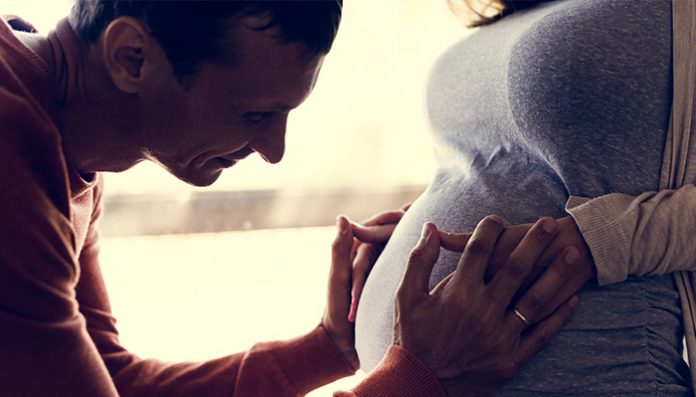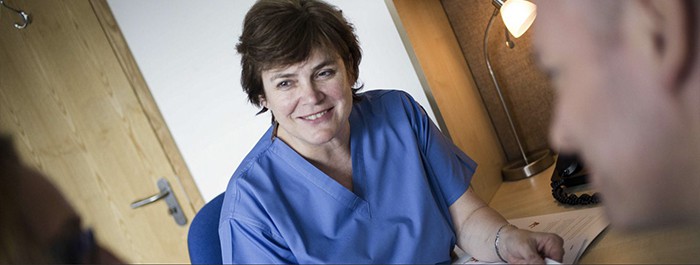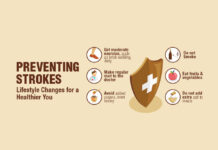
By: Dr. Sue Ingamells
Most women are born with 1 million eggs in their ovaries but each year thousands of eggs die naturally. By the time a woman reaches puberty, the number of eggs has already decreased to 300,000 and this number will continue to decline as she ages. So, by the time you reach your forties, conceiving a baby naturally may be a little more tricky. However, it’s not impossible.
If you are in your forties and you’re worried about getting pregnant, we spoke to the fertility specialists from Wessex Fertility to answer some of the burning questions you may have.
Pregnancy Success Rates in Women Over 40
As a woman ages her fertility rates decline and this can be a concern for many women, particularly if they have had a lifelong desire to have children but it hasn’t happened yet. If you are one of these women, it is important to remember that not all hope is lost. You haven’t run out of time. In fact, the chances of conception for women over the age of 40 is still very good, with 1 in 5 babies being born to women over the age of 35 in the UK.
However, it is a fact that natural conception is harder for a woman the older she is. Many women over the age of 40 have trouble conceiving naturally and this is making more and more women turn to fertility treatment. It is estimated that around 1 in 3 women in the UK having fertility treatments are aged 38 or over. So, you are not alone.
Is 40 Too Old to Have a Baby?
If you’re over 40 and you’re worried that the time for having babies has passed you by, we’re here to reassure you that may not be the case. You will be encouraged to hear that in 2015 the fertility rate for women aged 40 and over rose above the rate for women aged under 20 for the first time in nearly 70 years.
There are many reasons why this could be but one of the most notable is that many women are delaying having children to pursue their careers, travel, or find their soulmates. Advancements in contraceptive and reproductive technology have also given women greater control over their family planning. For many women, this means that delaying motherhood is an empowered choice.

Many women are also affected by the ‘celebrity effect’ of seeing successful women having babies after 40, in what seems to be a very effortless way. However, it is important to remember that many women considering pregnancy in their 40s are typically looking to have IVF to help support a healthy conception. A woman’s fertility does decline quite rapidly in her 40s, so it is important to know the facts and to understand the likelihood of natural conception for you and your body.
Keep Strech Marks at Bay with all Natural Balm
(Coconut Oil, Jojoba Oil, Olive Oil and Vitamin E)
Why Do Women Become Less Fertile as They Age?
As a woman ages, she becomes less fertile. This is because when a woman is born she begins life with a fixed number of eggs in her ovaries. The number of these eggs decreases as she gets old. What’s more, the older a woman gets the more likely it is for her eggs to have abnormal chromosomes.
Medically speaking, a woman’s peak reproductive years are in her 20s. By the age of 30, a woman’s ability to get pregnant naturally starts to decline and by the age of 45, natural conception is very difficult for most women.
Should I Take a Fertility Test?
If you are considering starting a family but you are a little older, it might be helpful to take a fertility test to find out how fertility you are. Generally speaking, female fertility does decline with age, however every woman’s body is different, so you might find that you get pregnant relatively easily.
How to Protect Your Fertility
If you are over 40 and you want to have a family one day but that’s not possible at the moment, it’s important you consider protecting your fertility. The best thing you can do is look after yourself and your sexual health. It is important to get checked regularly for STIs like chlamydia and gonorrhoea as contracting these can damage your fallopian tubes.
You should also work hard to maintain a healthy weight, alongside lowering your alcohol intake and avoiding smoking. If you look after yourself well and do everything you can to protect your fertility, there is no reason you won’t be able to have a healthy pregnancy in your forties.
Having Twins Over the Age of 40
Older mothers are more likely to have twins than women conceiving in their 20s. This is because as a woman ages, her follicle stimulating hormone also increases ad this can cause two or more eggs to be released during ovulation, which can result in twins. In fact, the likelihood of conceiving twins rises from about 1 in 80 in your 20s, to 1 in 40 in your 40s.
Fertility in Older Women: Your Questions Answered
There are a number of fertility doctors at Wessex Fertility who specialize in fertility for women over 40. One of these fertility specialists is Doctor Sue Ingamells and she is going to answer some of the most commonly asked questions by women over 40 who are trying to get pregnant. We hope you find it encouraging, informative, and helpful.
1. What is the most common assumption about getting pregnant over 40?
That becoming pregnant will still be easy and for some women it is but for others the number of eggs has declined and there are more abnormal eggs so it can be difficult for some.
2. Is 40 the new 30? How can you test your fertility age?
No, 40 is sadly not the new 30 for the ovaries which continue to age at a steady state (no matter what our projected lifespan is) and run out of eggs around the age of 51 on average. At 40 only 1 in 5 eggs will be normal and this can make it difficult to conceive. What’s more, the number of eggs reduces rapidly in one’s early 40s and can be lower than average for some women already.
3. What are the risks associated with having children over 40?
The main risks occur if there are other health problems, such as high blood pressure or diabetes. But if a woman’s health is good then risks can be minimized with a well-balanced diet, keeping fit and maintaining a healthy body weight. Women over 40 have a higher risk of having an operative delivery and as a result a higher risk of blood loss during delivery too.
4. Is technology and modern science making it easier and safer to have children over 40?
If women have eggs still then technology can help identify ones with a normal chromosome makeup in IVF programmes. They still need to have good egg numbers. However, genetic technology can now quickly identify the best embryos to try and reduce the number of negative treatments and miscarriages.
5. How to prepare the body for pregnancy? Vitamins? Supplements? Other?
The best recommendation is to follow a Mediterranean style diet with lots of fresh fruit and vegetables of all colours, fish, good quality protein, yoghurts, nuts, pulses and olive oils, minimising processed foods. Taking a pre-pregnancy supplement containing folic acid and vitamin D is also recommended.
6. Most common concerns and how to address them?
The most common concern for women is with having a baby with a genetic abnormality, as the incidence of trisomy conditions such as Down’s Syndrome increases with female age. However, a blood test called Harmony can look for this at 11 weeks.
Miscarriages are also a concern for many women and 40% of pregnancies will miscarry on average at age 40, so avoid making big holiday plans and travelling in early pregnancy in case you need to rest more and be closer to medical services.
7. What tests should one go through to make sure things are safe?
You should make sure you have a normal thyroid blood test, are not anaemic, have immunity to rubella and are fit and well before conceiving. It is a good idea to make sure your smear tests are up to date too, as this makes it easier to treat any abnormalities before you become pregnant.
8. What natural methods and alternative treatments are available today and are they effective?
Some women use ovulation detection kits to help with detecting their fertile window and these can be helpful but make sure you are still having intercourse regularly from day 9 of your cycle, as can be easy to miss the window if you rely only on the kits.
9. Is having children later in life safer and better now? Why?
Gynaecological and obstetric services in this country are very advanced and care is excellent but you must also take time to rest and care for yourself as a pregnancy in your 40s can be very tiring.

10. What should every woman know?
Having a baby when you are older can be a big shock, especially when the baby is very demanding and does not sleep so well Tiredness can be overwhelming in the first few weeks for all mums and dads but even more so when you are older.
11. What about hormones? How does that affect things?
Hormone treatments and assisted conception can help you to conceive more promptly, so it is worth talking to your doctor about a referral to a fertility clinic when you have been trying for 6 months – do not wait too long before seeking advice in your 40s.
How to Have a Healthy Conception Over 40?
If you want to heighten your chances of having a baby naturally in your 40s, there are a number of steps you can take:
Eat a Well-Balanced Diet: good fertility health starts with a well-balanced, nutrient dense diet. To improve your chances of conceiving naturally, you can add fertility supplements like folic acid to your diet to provide the extra nutrients you need.
Keep Your Pelvic Floor Muscles Healthy: you probably haven’t given a lot of thought to your pelvic floor muscles over your lifetime, but they are extremely important. As you age, you pelvic floor muscles start to weaken. So, it is important to strengthen your muscles with exercises like daily walking, yoga, and kegel exercises. This will help strengthen your uterus for pregnancy.
Manage Your Stress Levels: it is a well-known fact that high stress levels can inhibit your chances of a successful conception. Most women over 40 have had a lot of exposure to the negative effects of stress, so it is more important than ever to use mind body techniques, attend yoga classes, and physically relieve stress in any way you can to improve your chances of conception.
Track Your Cycle: if you’re trying to get pregnant, it is important to chart your cycle. There are 6 days within a woman’s cycle when a woman is at her highest fertility levels and, therefore, has the highest chance of successful conception.
How Long Have You Been Trying?
If you are over 40 and you have been trying to conceive naturally for over 6 months now, without success, it is time to see a fertility specialist. The sooner you book an appointment with a fertility specialist, the sooner you can determine whether there is a problem with your fertility and whether or not you need fertility treatments in order to have a healthy pregnancy.
Can A Fertility Clinic Help?
A private fertility clinic, such as Wessex Fertility or Boston Place can provide a range of fertility treatments for couples and individuals trying to have babies. Whether you are single, in a heterosexual relationship, or in a homosexual relationship, a fertility clinic can help you have a family.
Fertility clinics provide treatments like IVF, ICSI, and IUI that are catered specifically to a patients your individual medical requirements and personal needs.
__________________________

Dr Sue Ingamells PhD FRCOG is a fully accredited sub specialist in reproductive medicine and surgery with a specific interest in IVF.
She trained as an Obstetrician and Gynaecologist in Southampton and Salisbury and has worked in infertility since 1995. Sue has worked with Wessex Fertility since 1999. Her PhD with The University of Southampton was on the subject of ovarian function. She was also a Wellcome Trust clinical research fellow in molecular biology and endometrial function. Sue is specially trained in fertility and women’s health.
Her additional areas of expertise include recurrent miscarriage, endometriosis and ovulaltory disorders and their treatments. Wessex Fertility is a recognized centre for the provision of surrogacy service, with Sue coordinating these cycles with her dedicated team.
> Shop our Viva Winter Essentials <
Clean, Safe and None Toxic!
[carousel_slide id=’26198′]












